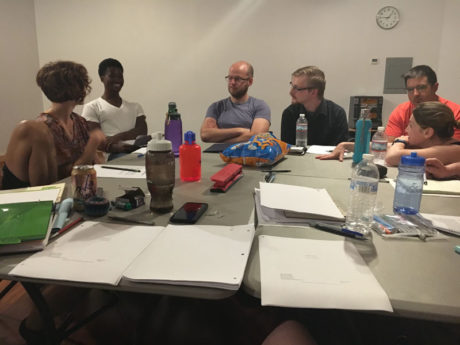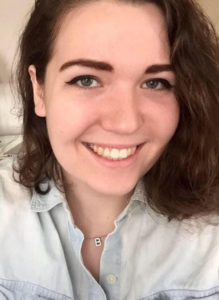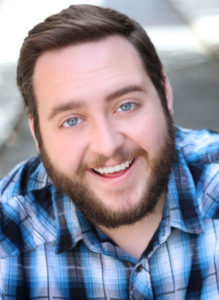The 2017 Philadelphia Fringe Festival offers a wide range of genres and topics, but few as sensitive and important as Suicide Stories: Gallery of the Untold — nine short plays by nine playwrights, directed by Lauren M. Shover. She used a wide range of different art genres to bring light into an often-impenetrable, dark situation, connecting the audience and the play in very human and creative ways. We added the name of each play behind the first answer of each playwright in this interview.

- Daryl Banner (Texas) – The Problem with Mickey
- Brittany Brewer (Philadelphia) – Casual Rape
- Brian Grace-Duff (Philadelphia) – I Forget What Eight Was For
- Dano Madden (New Jersey) – Jason Dotson
- David Meyers (California) – Broken
- Bridget Mundy (NYC) – Dark Windows
- Christopher G. Ulloth (NYC) (Also a member of ERP) – Museum Bar
- Kevin White (Philadelphia) – Rob
- Kat Wilson (Philadelphia) (Also a member of ERP) – The SS Marty
The Elephant Room Productions (ERP) team opens doors to this taboo subject by welcoming theatergoers to experience things we usually don’t talk about in a safe way. Audience members can go from room to room where actors perform a wide range of plays simultaneously, giving patrons the opportunity to spend as much time on a piece as they wish.

Henrik Eger: What part of your life’s experiences made you address suicide, one of the last few taboos in today’s society?
Dano Madden (Jason Dotson): Several of my friends have committed suicide. One when I was very young, one more recently.
Chris G. Ulloth (Museum Bar): Almost seven years ago, my sister died by suicide.
Bridget Mundy (Dark Windows): I’ve seen it before. I’ve had friends and family who attempted it. Suicide is something that’s around us all the time. It’s quiet, hiding in the background — until suddenly it happens. However, we can’t let it linger in the background anymore. We need to start talking.
Some of you did not experience suicide personally, yet you wrote about this sensitive subject. What encouraged you to tackle this tragic topic?
Kat Wilson (The SS Marty): Whether I am acting, singing, writing, or something different entirely, I have always felt drawn to the “deeper” side of things. I believe addressing taboos, especially suicide, in a theatrical setting allows humans to face the issue head on and hopefully achieve a cathartic release.
Brian Grace-Duff (I Forget What Eight Was For): Theatre has a unique ability to reveal the nuance of a complex issue — without the need to overly romanticize or dramatize it — to get beyond platitudes and show the real people it affects. That’s what drew me to working on this play.
Some of you presented suicide through a special lens. Tell us more about merging different perspectives on suicide.
Daryl Banner (The Problem with Mickey): Depression is something as real as a gaping wound you’d rush to the ER. I dealt with an infuriating number of “just get over it,” “she’s just moody,” and “he’s a weirdo.” I’ve lost too many young friends because of adults turning the other cheek. I also wanted to tackle the subject of teenage bullying, which is intimately related to suicide rates among gay youth.
David Meyers (Broken): I don’t know anyone who has committed suicide, but the subject has always fascinated me. I believe that the goal of theatre should be to explore these uncomfortable subjects — the things that most people are unwilling to confront.
My play addresses suicide and another “untouchable” social phenomenon, which I don’t want to spoil in this interview. After reading a draft of my play, someone said, “I don’t know if you should be writing a play about this kind of character.” To me, that was evidence that I was doing something right.
People who attempt suicide often spend a great deal of their lives struggling. Writers who tackle difficult subjects often struggle, too.
Kevin White (Rob): Suicide and depression have always been a part of my life or the lives of my loved ones. After years of struggling to deal with the issue alone, I found that writing and working on theatrical pieces about the subject are cathartic and, I hope, important to society at large.
Brittany Brewer (Casual Rape): About six years ago, I lost a friend to suicide, and since that time, I have been grappling with a full length play of my own that struggles to understand society, depression, and suicide.

It seems that a number of people sweep problematic subjects like suicide under the carpet. Why is it important for you to tackle suicide through a play and a public performance?
Dano: This is not the first time I have explored suicide as a topic. It has come up in a variety of ways in short plays and long plays. Usually, the inspiration is the same: Jason Dotson. I am still left with the question: why do we tell stories about suicide? Is it to memorialize the dead? Is it to raise awareness in the living about suicide? I think it has always been the search for some kind of an answer, or explanation about why he did it.
Brittany: Many humans struggle with depression, and many feel that it is necessary to not share their experiences. The case is similar for survivors of sexual assault. When learning the true number of people living with depression and/or living as survivors, it can feel surprising because these struggles can be and feel isolating — especially when there is no space for your story.
However, when you know there is a community, and you begin to meet people who have had similar experiences to your own, it does not feel as lonely. It is vital that we validate these narratives, and continue to have and strengthen conversations of support surrounding mental health and rape.
Writing could be compared to a voyage into the unknown. How do you hope your play will land?
Daryl: I hope that hearing this story can shed some light on the subject of bullying, depression, and suicide. The piece, though it is about the bullying of a gay teen, goes beyond his sexuality. It’s more about teenage peer pressure and bullying in general. Mickey can be anyone. The point is to open our eyes and our hearts — perhaps even, and especially to, the bully himself.
Kat: I want the audience to walk from this play with a sense of hope and a desire for a better future. I hope to inspire and lift up my audience by creating positive change.
Chris: It’s common in the rhetoric surrounding suicide prevention for experts to say, “you shouldn’t give details about the victim.” They say this to prevent others from relating to the victim and register their actions as within the realm of possibility for humans like you.
The inherent problem with that rule for survivors is that we have already seen the victim as a person. There’s no dehumanizing someone you loved dearly. My play doesn’t obey that rule. Aside from it defying everything I was taught as a writer, I don’t think I would have been able to heal had I followed it.
My hope is that this play will do the same for other people who may be in pain. And for those who aren’t in pain, I hope that viewing this play will serve as a reminder to cherish the loved ones in their lives.
For Suicide Stories: Gallery of the Untold, ERP uses a non-traditional approach. Tell us more about it.

Brian: This production is trying to provide a lot of care for the audience. It’s set up in a way that people can view as much [of each play] as they want. And if someone gets overwhelmed, that’s okay — because it IS an overwhelming topic.
Bridget: I loved working on this project. It’s a new way of doing theatre, something different — a reinvention. We should constantly be reinventing how theatre is performed, or viewed, because then we reinvent ourselves.
Kevin: Rob is unlike any other piece of theatre I’ve been involved in. I am excited to see how the final product turns out — both as a playwright and a theatre patron. With so many artists from a wide range of mediums involved, it is sure to be a unique and moving performance.
David: I’m excited to see how the production turns out, due to the inventive use of space and different forms of theatre. I hope you’ll come out to explore these plays for yourselves!
Running time: Two hours with no intermission. Come and go as you please.
Suicide Stories: Gallery of the Untold plays September 12 – 16, 2017 at 6 pm and 8 pm at The 2017 Philadelphia Fringe Festival and is presented by Elephant Room Productions at the Asian Arts Initiative – 1219 Vine Street, Philadelphia, PA. For tickets, call the Fringe box office at (215) 413-9006, or purchase them online.




